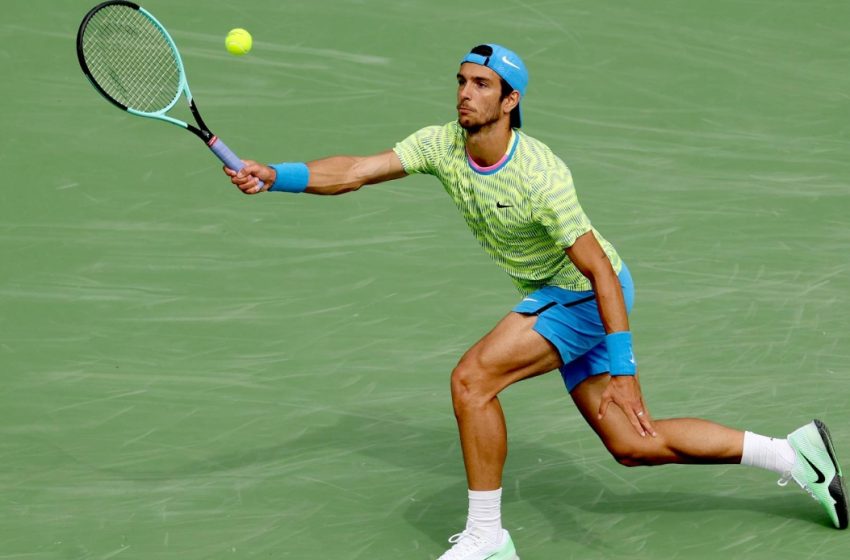Lorenzo Musetti Winks at Future Awards by Leaving Taylor Fritz Behind

WIMBLEDON — It was 18.40 in the evening. On Court No. 1 of Wimbledon on Wednesday, Lorenzo Musetti was serving just four points away from a Grand Slam semi-final. At the south end, Musetti was ahead 5-1 in the fifth set against Taylor Fritz and dominated the game with this advantage.
Watching Musetti play can trigger a range of emotional responses. He stands out as a reactive player who often plays passively, but does not hesitate to respond to the opponent’s moves with big questions. Musetti’s single-handed backhands are among those that excite audiences the most as he rotates his shoulders and places the ball deep down the court or on the lines. However, these hits can sometimes be overshadowed by questionable decisions and fluctuations in his game.
Musetti’s performance at the crucial moment was uncertain. It was a matter of curiosity how he would manage the next game.
His answer was clear: He started with an ace at 126 mph. He then increased his speed to 192 miles per hour. Serving again from midcourt, he controlled a rally quickly enough for Fritz to make a forehand error. Two points later, at 30-15, Musetti hit a forehand that literally knocked Fritz off his feet. At 40-15, he sliced his serve wide at 191 mph and watched his forehand hang in the air for a long time. The clock was now showing 18.43. Musetti won the match 3-6, 7-6 (5), 6-2, 3-6, 6-1 and was preparing to face Novak Djokovic on Friday.
Musetti stated that he felt great happiness after the quarter-final victory. “Today is the most important day in my life, next to the day my son was born,” he added. “It’s a tremendous day in my career.”
Less than three minutes ago, a three hour and 24 minute game had seen its ups and downs. Fritz was the favorite for this match, beating Musetti in three straight sets here two years ago and coming from behind to beat fourth-seeded Alexander Zverev in the previous round.
However, Musetti took control at critical moments of the match. He broke Fritz’s serve at 1-2 with an early break and did not face any other major challenges throughout the set. In particular, it was notable that Fritz won 67% of his second serve points. It was unclear how Musetti would win the three set points.
At the beginning of the second set, Fritz gave signs that he could transform the match when he broke Musetti’s serve. But Musetti quickly recovered, breaking Fritz at 15 and displaying a series of cuts, drop shots, volleys and more in the next two sets to level the game and race all the way to the third set.
When it was Fritz’s turn to recover, he fended off three break points with great hits while serving at 2-2 and love-40; these included a diagonal backhand winner and an ace at 109 mph.
Facing another break point, Fritz handled the situation with an inside forehand. Musetti held on to love and took the lead again, beating Fritz at 3-4. With one point at 1-1 in the fifth set, Fritz hit an easy forehand. From then on Musetti was unstoppable; He played much better than his performance in the second and third sets.
Fritz responded to a question about fatigue from his previous match by citing the field conditions. “The difference he felt when I played against Sascha under a closed roof was big,” Fritz said. “The conditions were perfect. There is no wind. You always know where the ball is. You maintain your rhythm. Now I face an opponent who moves with the wind and slices the ball. It’s a tough situation. I really need to determine where to hit and generate power.”
As Ken Rosewall, the man who made one of the best backhand shots in history, was watching Musetti’s slice shots from the side of the court, Fritz’s comment was apt. Musetti played an effective game with this technique, causing Fritz’s forehand error.


